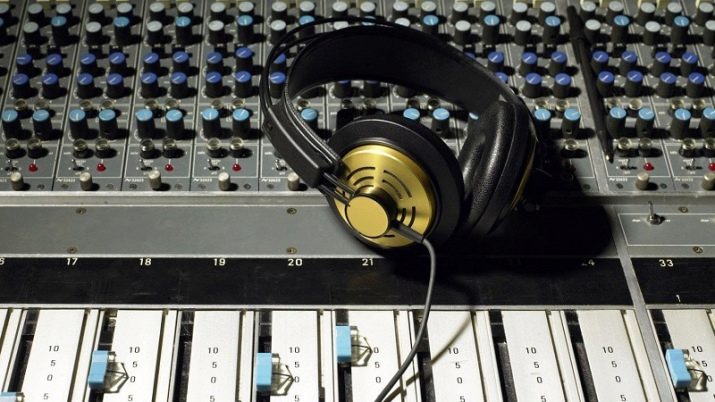All about professions related to music

In the field of music, there are a large number of professions and activities, many of which are unknown to the common man in the street. It seems that the choice of musical professions is extremely limited (composer, singer, instrumentalist). However, in fact, there are quite a few directions, and a person who is versed in music can do all kinds of work.
Features of professions related to music
To achieve success in music, you need to be seriously passionate about it, literally live art. The creative profession requires from a person a sincere love for music, the presence of an impeccable ear for music, a sense of rhythm. In addition, you need to have a broad outlook, hard work and the ability to work with people. In this field of activity, you need not only musical ability, but also the desire to constantly improve your skills. The undoubted advantage of the profession is the ability to realize creative potential, communication with interesting famous people, as well as the chance to wake up famous.
However, it is important to remember that there is a risk of failure and lack of money. Most likely, you will have to endure the instability of earnings and personal life, which is associated with constant travel and popularity. Success in the creative field is achieved with great difficulty. Often, after graduating from the conservatory, musicians go abroad. However, those who work on the stage or prefer rock music have more opportunities for development. People are more likely to attend a pop or rock concert than a symphony orchestra.
Moreover, the choice of place of work is wider: restaurants, cafes, local concerts or holidays.

Professions without musical education
You can find work in the music field without education, contrary to stereotypes. High skills plus an ear for music will do the trick in this case. It is mandatory to have a diploma only when you want to work in a government organization or if the employer seeks to comply with full officiality (which is not always the case). Often the skills of the musician are important to the employer.
So, who can you work in the music field without having an education?
- Musician. Here, the prospect is to work on various events (weddings, corporate parties, restaurant events, etc.).
- Sound engineer. In this case, it is important to have a wide knowledge of musical equipment and be able to tune the sound.
- Selling music lessons on the Internet. Now the era of webinars, courses and guides has come, so if a musician, in addition to his direct skills, knows how to convey information to the listener, then creating an information product is a good way to make money.
- Sound producer. This is the person who is responsible for overall group management and product quality control.
- Arranger. Knowledge of music theory is mandatory here. The arranger composes the parts and provides the framing for the melody.
In addition to the above professions, one can also mention stage technician, band director, music manager, PR manager, music promoter, journalist, or critic.

Education
Many people who have chosen the path of a musician begin their journey from music schools as early as childhood. There they are taught musical notation, playing various instruments and vocals. You can continue your studies in your specialty at the school, improving and honing your skills.
So, here are the top 3 most popular establishments of this kind in Russia:
- Moscow Military Music School;
- College of Musical and Theater Arts named after G. P. Vishnevskaya;
- music school named after the Gnesins.
This specialty can also be obtained in the best secondary schools in Yekaterinburg, Omsk, Arkhangelsk, Perm and Novosibirsk. And in order to move to the highest level of training, you should think about entering a conservatory or an institute of culture. There are the following music universities in Russia that deserve special attention:
- St. Petersburg State Institute of Culture and Arts;
- State Specialized Institute of Arts;
- St. Petersburg State Conservatory named after N. A. Rimsky-Korsakov.
The aforementioned universities are some of the best in the country and offer a wide range of music majors.

List of the most interesting and in-demand musical professions
In the creative field, due to the variety of activities, any person with talent can find refuge. You can not only play a certain instrument or create music, but also illuminate the creativity of musicians. The composer is primarily involved in the creation of music. To work as a composer requires mastery of musical notation and composition technique, as well as the ability to use computer programs to create music. Further, the arranger, as a rule, interprets the already existing melody, preserving the author's intention of the composer. They often remake some classical works for modern genres such as rock or jazz, thanks to which the compositions acquire a new charm and become relevant for modern listeners. The songwriter is an infrequent phenomenon, but this type of activity is still in demand. Lyrics are either written separately and then set to music, or they are created specifically for a specific composition.
Further, Over the past couple of decades, the DJ profession has become increasingly popular. This person must be fluent in a DJ console, as well as computer programs for creating music. He works with ready-made material, mixing and modifying it in such a way that a new original composition is obtained. Now let's move on to the performers. Instrumentalists play one or more instruments, either solo or as a group. The main working instrument of vocalists is their voice. Most often they perform songs in one specific style. The number of performers varies from one to several. The conductor manages the musical group, making its sound beautiful, even and harmonious. He must have perfect ear for music.
Here you can also mention a music organizer, a PR manager, a music columnist and, of course, a sound engineer. The profession of a musicologist deserves special attention. Such people comprehend art in a scientific way. They explore music, its development in the moment, its interaction with other cultural spheres. The musicologist also professionally evaluates the performers and their compositions. The music editor is also a special kind of activity. He creates playlists for radio broadcasts or events, forms the musical repertoire of various organizations, and performs many organizational responsibilities. The music editor also deals with the sound design of TV programs, listening to participants at castings, making ratings and monitoring the appearance of new products in the world of music.










